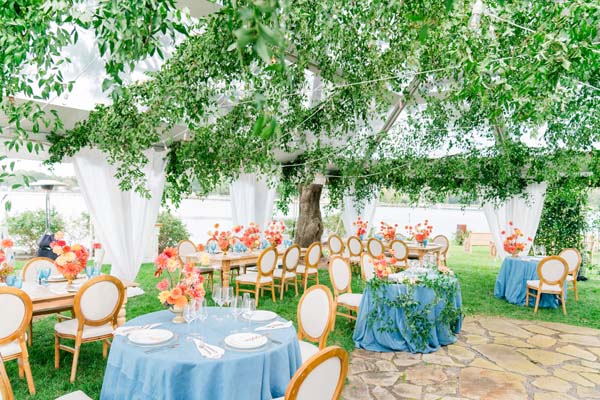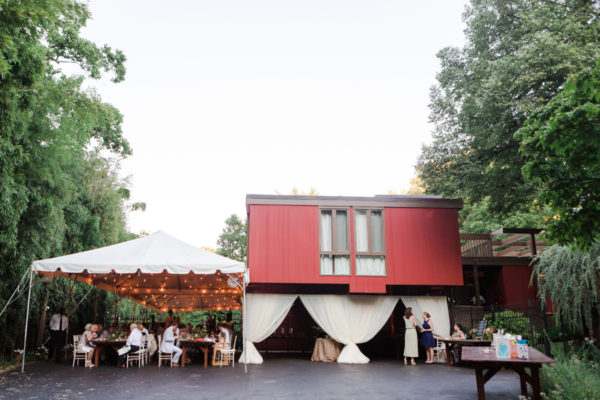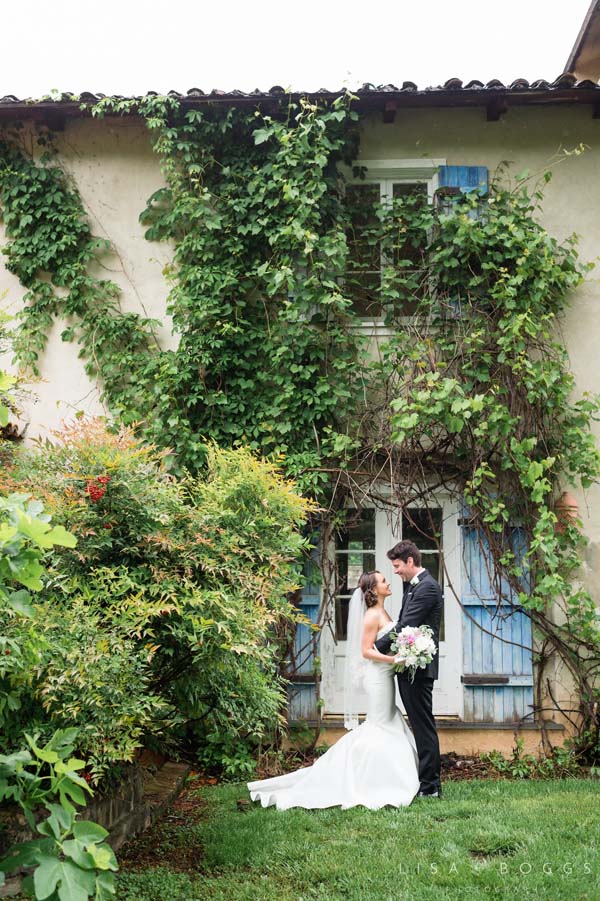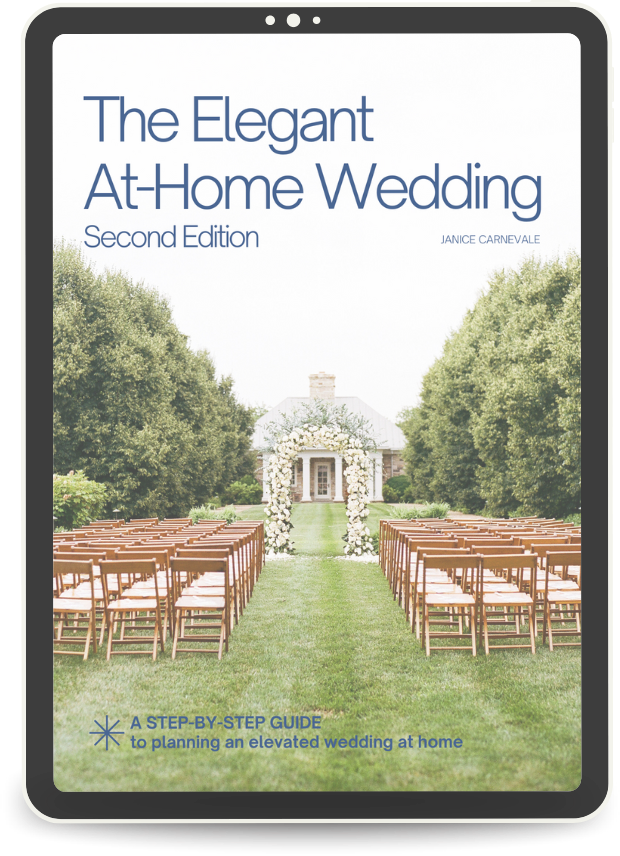DOWNLOAD NOW:
Recently I got a press request about small weddings at home. Hours later the press request was rescinded, the editor changed the direction of the piece. But I figured that if a magazine writer was interested in this topic, engaged couples might be as well. So I copied the questions and have answered them below!
Can you talk about how small home weddings have become the new norm as couples shy away from having their big traditional weddings?
Privacy is now a high priority for wedding venues, because that translates into safety. There is great peace of mind in knowing who has been where, and when (and how) the last cleaning was done.
With guest list caps instituted by local governments, having a small wedding opens up more possibilities for your wedding venue.
Hosting an event outdoors, or as outdoors as possible, is a way to help keep everyone safe and healthy. Tented events are rising in popularity.
When you put these three things together: privacy, intimacy, and a desire to be outdoors, a home wedding will rise to the top of the list in a venue search. A wedding at home ticks all these boxes and then some.

Can you please share some of the key reasons why a wedding at a home comes with its own set of challenges and considerations worth making in order to ensure that the wedding runs smoothly?
The main challenge for home weddings is the lack of infrastructure to support a special event. Parking, power, lighting, climate control, bathrooms, and more, is provided by most special event venues. However, it has to be brought in for your home wedding. Lining up all these items will drive up the overall cost of a small home wedding. $1800 for a restroom trailer, $750 for a generator – these things add up quickly. This is why I tell people that having a wedding at home is probably the most expensive route to go.
A secondary challenge is that what seems a large yard may not actually be large enough. If you have a smaller property, less than a couple of acres, you may not be able to accommodate as many people as you hope. Getting a site inspection from a reputable tent company should be your first step, aside from hiring a wedding planner. Tree branches and landscaping might impact your placement options. Underground lines or nearby hardscaping might limit what type of tent or staking options are available to you. Knowing the size and type of tent that can fit is the first step. When you start to dive into tent floor plans, remember that a tent has to hold more than just people. There is your entertainment, bars, possibly food stations and cake that also have to fit. Working with an experienced wedding planner can help you navigate this process.
To ensure a wedding at home runs smoothly, you want to consider carefully who is making up your wedding team. You need to have a team of highly experienced wedding professionals who are all on the same page. You want to hire experts in their respective fields who also can appreciate the macro view and be a good team player. Having a professional wedding planner leading your team will not only take this weight off your shoulders but will also add an extra layer of oversight to ensure the team is firing on all cylinders.

What are your top 3 dos for a small home wedding?
Do be smart with your event setup and budget. Instead of spending thousands of dollars on a leveled tent floor, use the flattest area available for your tent location, even a driveway. Before committing to a big floral proposal, or luxe wedding invitations, make sure you have a grip on the costs of all your infrastructure needs. You have to keep your guests safe and comfortable before you splurge on the pretty.
Do get the biggest bathroom trailer you possibly can. I always try to get a trailer that has at least 3 stalls on the Ladies side. The rental companies may tell you that this is more than you need, but they are wrong.
Do invite your photo and video team to the home to do a tour before the wedding day. You’ll want to plan out locations for your first look (if you’re having one,) couple and group portrait sessions. This is a great time to point out spots or areas of the property that are important to you. These details might not be top of mind on your wedding day.

What are your top 3 don’ts for a small home wedding?
First, don’t make any commitments regarding a home wedding before having a tent company come out for a site inspection. This will allow them to provide you with an estimate of costs. The size of the tent that you can fit will help determine your tent floor plan. The tent space has to accommodate not only your guests but also your entertainment, bars, food stations, and cake table.
Second, don’t overlook your need for additional lighting. Once the sun goes down, your guests and staff will need to navigate the property in the dark. The paths to the bathroom, the catering kitchen, and the valet need to be well lit.
Finally, don’t let people into the home. If you’re planning a 10-20 person dinner party, sure, being inside the home is manageable. But if you are planning anything much larger, your restrooms likely can’t handle such usage. And the wear and tear on your home will be noticeable. Keep your home safe and secure by keeping guests out of it.
Anything else you’d like to add?
There are so many things I could tell you about a small home wedding. The topics are endless, as are my opinions. I am also quoted in these two recent articles about home weddings:
What You Need to Know About Working with a Couple’s At-Home Event Space
5 Ways to Make Your Home Wedding Feel Unique
Please feel free to reach out to me with any questions you might have.


